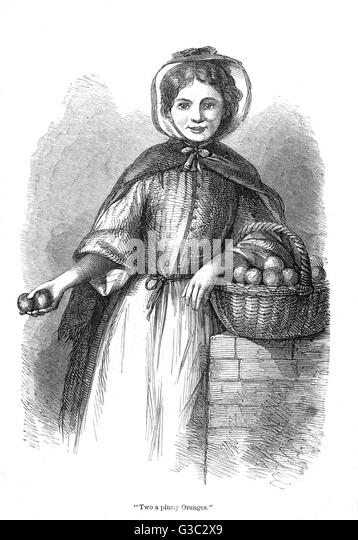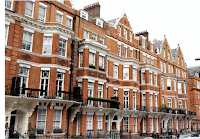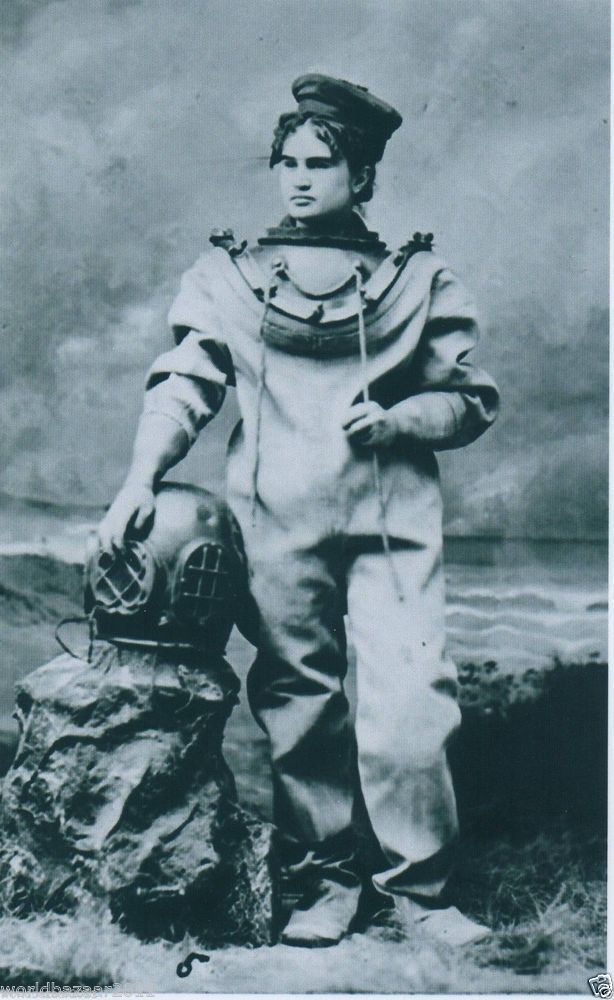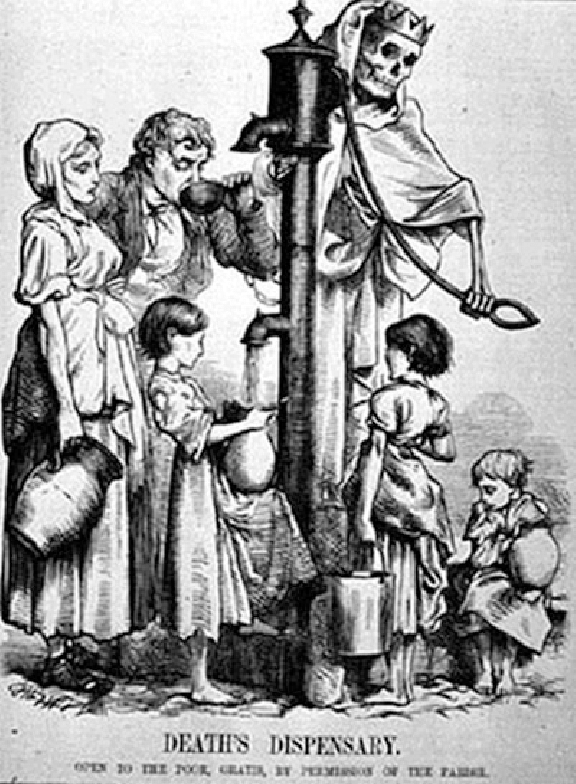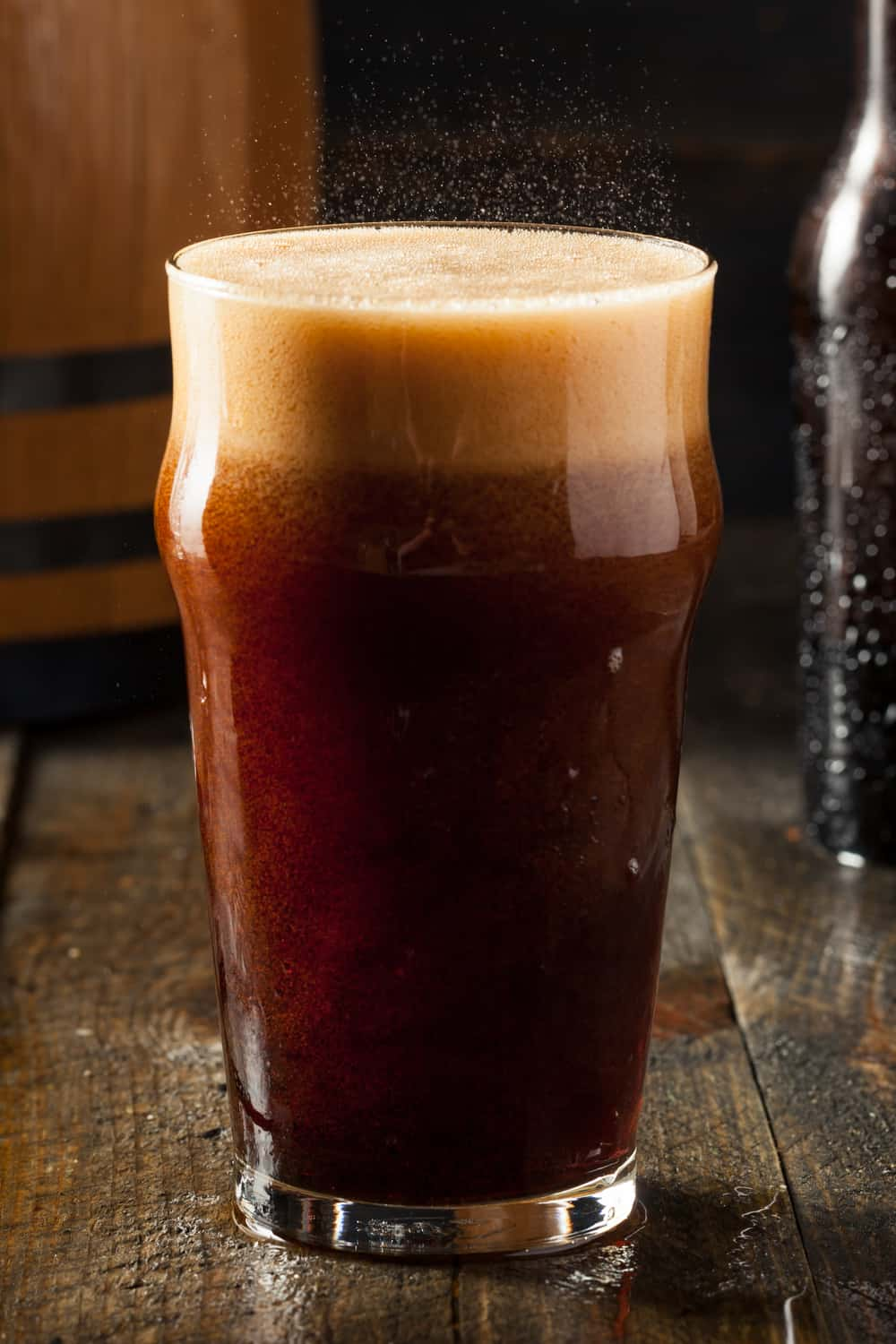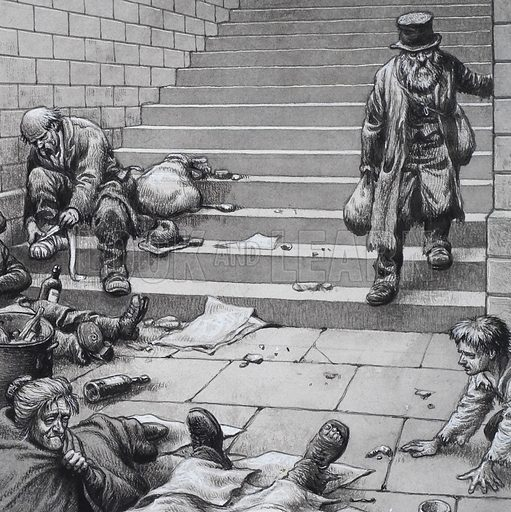

Hello. I'm writer Antoinette Beard... WOO-HOO-HOO!!! This is sensual, bizarre & macabre. Keep scrolling after the posts for much weird info and wonky photos. Also, use the "Search Box" to discover more quirky fascinations. Outwardly, Victorians were conformists, but there are always those who delight in flaunting conventions. ADULT CONTENT, --- naturally. ;)

Tuesday, January 31, 2023
The Sleazy, Immoral Theatres & The Thieves Of The Radcliff Highway Rookery (Slum)...

Monday, January 30, 2023
Beautiful Corset Dress...
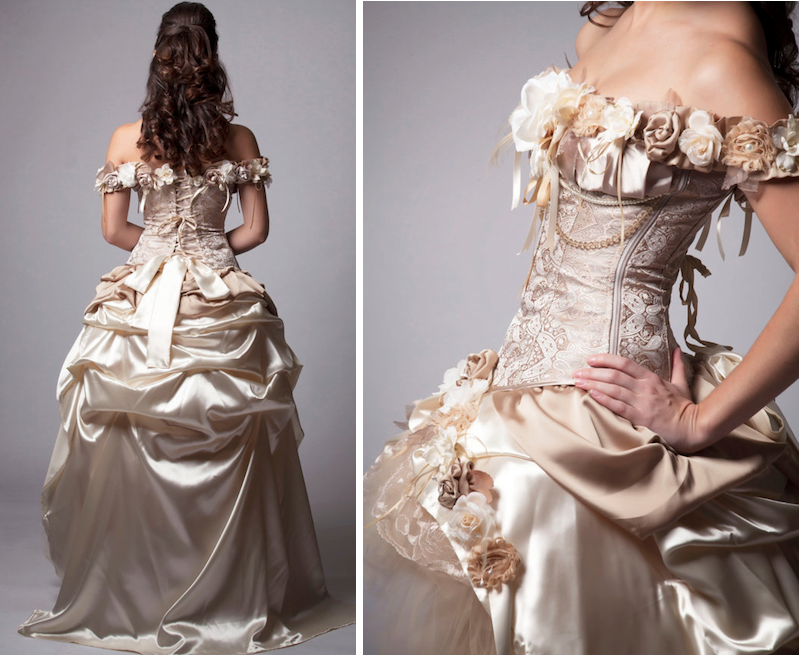
Sunday, January 29, 2023
Victorian Fish & Chips...
Did you know that Charles Dickens referred to tasty fish & chips in "A Tale Of Two Cities"???... 👍😋 Well, he did! He was rhapsodizing about fish "cooked in tasty drops of oil"! That makes me want some right now!!!
💖💖💙💙💝
The White Slaves Of Whitechapel...
& Even The Policing of the Late Victorian/Edwardian West End Of London, --- How Strange...

A bit of a mouthful, the title of this post – but bear with me; its contents may well surprise you and come courtesy of a riveting Funzing lecture that I attended, given by the historian Sarah Wise.
As we travelled back in time to the 19th century Sarah explained that, contrary to what’s often stated, there existed many organisations of differing ideologies fighting to defeat the white slave trade: feminists, magistrates and left-leaning progressives among them.
The term “white slavery” itself is problematic. Sarah described it as the “melodramatic and inaccurate” name given to the trafficking of women, arising from the Caucasian description of white people living in enforced slavery: the idea that it was “doe-eyed, rosy-cheeked virgins” being trafficked.
In reality, of course, women of every race fell prey to traffickers, particularly economic migrants, who were frequently intercepted at ports. Prostitution in those years was “truly global”. Few border controls or immigration policies existed – and those that did were rarely implemented. Women were a commodity to be traded, then discarded.
Let’s turn our attention to 1880, and to Brussels – where continental ‘maisons de tolérance’ were being investigated by the British government, in case British women were detained there. This grim reality was reported in the UK on a daily basis – at a strange time for British society. Over the previous decades, wave after wave of legislation had nibbled away at Victorian male prestige, starting with the 1857 Divorce Act: the beginning of legislation that changed the status quo. 1870 saw the passing of the first of several Married Women’s Property Acts, following years of campaigning by feminists. And in 1886, the Contagious Diseases Act was repealed.
It wasn’t all good news, though: 1885’s Criminal Law Amendment illegalised homosexuality and, shockingly, wasn’t repealed until 1967.
The editor of the Pall Mall Gazette, WT Stead, knew that trafficking was rife, even while many of his contemporaries pretended it wasn’t happening. In an infamous exposé in 1885, Stead “bought” Eliza Armstrong, of Lisson Grove, from her mother for £5 – and promptly published ‘The Maiden Tribute to Modern Babylon’ – an article which remains a harrowing read.

The scale of prostitution in the West End in the 1850s/60s was “horrendous”, involving very young men and women – and children. Although circumstances had improved slightly by the 1880s, there were still 8-10,000 prostitutes walking the streets – those same streets that London’s 16,500 police officers believed they had “cleaned up”. The police, however, had been allowed too much leeway by previous Acts of Parliament, as had magistrates, who exercised unhealthy levels of control over the conviction rate.
The tale of Miss Elizabeth Cass is a most cautionary one. Hailing from County Durham, this young dressmaker came to live in London in 1887. One Friday evening, she journeyed to Regent Street to make a purchase from Jay’s Mourning Warehouse. It was June, and a very hot night: London was packed with Golden Jubilee crowds. All of a sudden, Elizabeth found herself seized by police officers and charged with ‘soliciting as a common prostitute’, the arresting officer vowing that he had encountered her several times before. However, Elizabeth’s employer stood up for her and the magistrate gave her the benefit of the doubt “this time” – which grudging forgiveness left a deep stain on that poor woman’s character.
A huge media furore ensued around the subject of ‘innocent versus guilty’: the magistrate had effectively argued that women had fewer rights to walk around London than men. The furore led to the Liberal MP William Caine speaking out in the House of Commons about women being falsely accused of crimes by West End police officers. There was also, Caine stated, wide-spread extortion on the part of the police: certain officers charged prostitutes a monthly “fee” to practice their trade.
Shopkeepers also spoke out. They wanted – needed – women to go shopping in the West End and could not understand the police’s attitude. New innovations included lavatories, roof gardens and cafés, designed to capture women’s spending power. Glass plate windows, improved suburban trains and the Underground had made the West End more appealing: shopkeepers wanted women to stroll – and to shop.
And yet, the nation of “unchaperoned” women in the West End remained controversial, particularly for upper class women.
No one understood this better than the owner of Piccadilly-based store Swan & Edgar. He told a 1908 government enquiry that one of the West End’s biggest problems was male “pests” constantly harassing and soliciting female shoppers, from whom he had received numerous complaints – including the daughter of a Swan & Edgar director.

Yet, complicit as the police may have been, they had few powers to charge the perpetrators, even with Swan & Edgar prepared to act as a witness. A “massive” double standard for women and men was in operation. Probably inevitably, the trial of the police officer in the Elizabeth Cass case collapsed; that poor woman’s name was blackened all over again. The ramifications of the case, however, did have a massive effect on policing in the West End.
Many more such instances are on record. On 20 March 1906, Mrs Teresa Norris changed omnibus on the way home to her husband in south London. Having dropped her umbrella, a gentleman picked it up and handed it to her; she thanked him – and was promptly marched to the local police station. Here, she was remanded overnight, PC Cole having told his superiors that he frequently saw Mrs Norris ‘plying her trade’. Spending the night in a police cell was a most educational experience for that lady who, whilst chatting to actual prostitutes, learned that they had to give Cole money nightly, otherwise they were arrested.
Disappointingly, the 1908 Report of the Royal Commission upon the Duties of the Metropolitan Police downplayed the concerns of the press and the public: three officers were sacked and one prosecuted for perjury – otherwise, little changed and the Report was widely lambasted as a “whitewash”.
On a more positive note, a number of voluntary vigilante groups were set up, determined to protect women and who prowled the UK’s railway stations and ports – among them the National Vigilance Society, the Metropolitan Association for Befriending Young Servants and the Jewish Association for the Protection of Girls & Women.
It was at this point that the lecture concluded, leaving me keen to find out more, especially how policing in London evolved during the 20th century. That investigation will have to wait for another day – but I hope I’ve managed to convey some of Sarah Wise’s knowledge and passion for her subject; I found her talk illuminating.
--- From "London Life With Liz".
Saturday, January 28, 2023
Friday, January 27, 2023
Victorian London Flower Girls...
Thursday, January 26, 2023
Scenes From 2004 "Van Helsing"...
...with Hugh Jackman & Kate Beckinsale. 💖💋💖 That great looking hat that Van Helsing wore was one-of-a-kind. They kept drying it off and cleaning it as it went through mud, rain, snow...
Wednesday, January 25, 2023
"The Casebook Of Leslie Rokket, Victorian Female Detective, Part 1: The Ripper & The Slum Roses (Chapter 2)"...
... A bit more >>> 😋
She had paid for their tea and scones and the treats, --- tea and scones with the addition of chocolate and caramel fudge, for his men too. Jack jiggled his foot, his legs crossed, a position he didn't assume very often.
"Drink your tea, Inspector," Leslie said. "It's getting cold. I'll have to send for a fresh pot. "
Jack Pritchard leaned across the table. "May I ask you what we're doing sitting here when we should be on our way to Whitechapel?"
Leslie smiled like a pussycat who has a mouse cornered. "Mister Pritchard, am I correct in assuming that since Commissioner Warren declared I was to be given all help and co-operation with this case that you are to assist me in any and all suggestions I might have?"
Jack cleared his throat. "Well..."
"I distinctly heard Deputy Commissioner Lowery tell you just that right before we left Scotland Yard."
Jack's face reddened. "He did... My men are restless, Miss Rokket!"
Leslie looked over at the bobbies sitting at a long table, eating apple scones and fudge with their tea. "I'm sure they would rather lift some pints of ale, but they look content enough. We need them sober."
Jack didn't answer. Did she think he was an idiot, that he didn't know that?
"Look, Inspector," Leslie said, "we're on the same side. We all want to see these grotesque murders stopped and this horrific case solved. I have some ideas I'd like to run by you. I'd like your opinion on them."
"Fine," Jack replied, a bit stiffly.
Leslie took a sip of tea, "First, I think we should go into Whitechapel incognito, in the type of clothing residents of the area wear. We should discreetly ask questions that way."
"Do you think we haven't tried that?"
"I'm sure you have, but humor me. I will go in dressed as a man, and believe me, with my height, it's easy for me to be taken as male."
"I believe it." Jack didn't say that Leslie was the tallest woman he'd ever seen.
"Once I'm in, with you too, and after we both flash our identifications as official investigators, I'll reveal that I'm a woman. I'll talk to the prostitutes, and to the men of the area. I've discovered most folks are less intimidated by a woman asking questions."
"Hmmm..." Jack shrugged. "Different approach, --- why not? What's to lose?"
"Exactly. We can buy used clothing at a big market nearby."
"For just you and me?'
"Of course, Inspector."
"What will we do with the men?"
"You can think of some errand for them to do, I'm sure."
Jack smiled. "I can, Miss Rokket."
"We'll take the clothes to my lodgings. We can change there."
"We can?'
"Naturally, Mister Pritchard."
"I change in your room."
"In the bathroom of my room."
"Won't the management think it strange that you're going to your room with a man in the middle of the day?"
Leslie's eyes crinkled. "Immoral, you mean? It's been my experience that the more expensive the lodging place the more rigorously the staff protects the privacy of it's guests. And, anyway, do you care what they think?"
"No."
"Neither do I, none of their business."
"You're a most unusual woman, Miss Rokket."
"I am."
Jack Pritchard took several large swallows of his almost full cup of tea while Leslie ate the last of her scone. He rose and went to the table where his men were sitting, briefly talked to them. The bobbies rushed out of the eatery. Jack returned to Leslie, sat down.
"They did ask if you had the full permission of the Skipper to direct things."
"The Skipper? Does that mean Deputy Commissioner Lowery?"
"Yes."
"They call him the Skipper?"
"Uh, yes. He commands a lot of respect in the Metro, Miss Rokket. They're used to him."
"I see, --- loyalty, good."
"I told them to go to The Punchello, that we might be gone for a while, but not to get drunk or their pay would be docked for this week."
"And, you think they'll obey you on that, --- ummm, threat?"
"I do. Constables don't make that much. They'll probably just have a pint and play cards till we arrive. They seemed happy to comply."
"Good. Do you know any of the prostitutes who work the streets of Whitechapel, Mister Pritchard?"
"Miss Rokket!"
"Mister Pritchard, if this investigation is to make any progress at all we must be absolutely honest with each other. I consider us to be partners. I greatly value your expertise in all things. I take it you are a sophisticated gentleman."
"I am."
"And, such gentlemen have wide ranging interests."
"Yes..."
"Then, tell me. I assure you anything you say to me regarding this investigation that you do not want put into a report will not be included. I am a professional."
" I know --- some girls."
"Like who?"
"Names?"
"Yes."
"There's Molly Carstairs. She's one of the youngest and prettiest. a little desperate since she's had a baby and still has her two little brothers to support. She won't give the baby up."
"Do you think she would know vital details about the killings?"
"They all do, but they're scared. Even the brothel madams are scared. Dee Terwilliger is fretting her bowels into fiddle strings, afraid she's going to lose her girls."
"Do you think that lots of money would loosen their tongues?"
"Maybe, if it was enough money. They'll do almost anything for the right amount of money. And, --- they're like a nasty Sisterhood. They all know each other intimately, the best-of-friends-and-the-best-of-enemies, if you get my meaning, all the wh---, prostitutes in the East End are like that with each other. They do it to survive. They're like starving mice."
"You can call them whores, Mister Pritchard."
"If you're going to talk in the way they do in the slums of East End, Miss Rokket, you might as well know they're also called chippies, soiled doves and lots of worse things."
Leslie thought it was rather sweet that Jack was trying to "protect her ears". "Do you know other girls?," she asked.
"There's Judy Ripple, Sue Stall, Bess Simpson, Tilly Lipton, Nettie Leakey."
"Leaky."
"It's spelled with a second 'e'. That's her real name."
"Is there an informer, someone we can get to tell wild secrets for enough cash?"
"Miss Rokket, you know all us coppers want to work with such like, but 'peeches,' as they're called in the East End, are hard to find. And, the good ones aren't cheap. There's Racking Sid. He claims to be fatally ill with consumption. Says it's in his lungs, of course, but also in his spine, liver, kidneys, even his brain, but he's the heathiest dying man I've ever seen! He doesn't even cough! Sid is very expensive. He's a professional Underworld king, --- in Paris, Venice, Berlin, Rome, Malta, Singapore, Istanbul. He travels a lot, but his home base is London, but where, --- we have no idea. He's, uh, --- organized, has armies of apprentices. He can look different; from one time you speak to him to the next. He even looks shorter or taller, older or younger."
"A criminal genius chameleon."
Jack nodded. "The Police can't afford him, could never afford him."
"I'm sure I can, and I'm intrigued. Let me guess... The London Police have never had him in custody?"
"Not even once, as I said, we don't even know what he looks like."
"Do you think he would know the identity of Jack The Ripper?"
"Sid knows everything about the Underworld, all the big and little sh---, scum."
'You were going to say shite. Do you know where we can find him?
"No, Sid finds you, if he needs to, if he wants to."
Leslie had been leaning forward in her eagerness and interest, her knees almost touching Jack's. Now, she sat back, sighed deeply. "That's really too bad. But, fine, Mister Pritchard, more than fine, --- most excellent. I greatly appreciate your valuable help. You should know too that confidentiality is my stock in trade as a private detective. I would not be where I am today if I blabbed!"
"You are successful, Miss Rokket?"
Leslie was almost used to being insulted, practically everywhere she went, almost. "Of course, I'm very successful! I think you've guessed that!"
"How long have you been a private detective, --- if I might ask?"
"Twelve years."
"And, then you are___?"
"Thirty-three."
Jack was thirty... She was very successful. It was hard for him to grasp, --- a very successful female detective. Well, he supposed that in America businesses might be more liberal. Perhaps, a female detective would be accepted more readily. No doubt her father had helped her become established. And, Leslie was obviously bright and well educated, --- and, as he was coming to quickly realize, she had a resourceful nature. She certainly talked as if she knew what she was doing. Plus, she was unnaturally bold and confident for a woman; with her size, she was formidable. Hmmm... Jack frowned, impressed in spite of himself. Damn. he hated to be wrong about anyone or anything!
As if she was reading his mind about her size, Leslie said, "I'm six, one. Both my parents are very tall." Jack was five feet, nine. His frown deepened.
Leslie's hazel eyes, with glimmers of green, were sparkling. "So, after we purchase the clothing we'll go to my lodgings, change, and be off! The residents of Whitechapel speak with a certain accent, --- correct, Mister Pritchard?"
"Yes, a sort of Cockney."
"Can you do it?"
Jack grinned. "Sure."
"I think I can pull it off too. I have a quick ear and I'm used to going disguised. Of course, I won't know the slang words, but that shouldn't matter much."
"I can tell you some of the expressions are 'Oi!,' 'Cor!,' 'Blimey!,' and "Crikey!'."
Leslie grinned. "Hmmm... Say something to me in the speech."
Jack leaned forward. "Cor, me missus is bleedin' pissed wi' me fer stayin' ot a' night. She'll be 'untin' me tail feathers fer 'er bonnet, sure as dogs does it in the street."
Leslie threw her head back and laughed. "Oh, most rich, Mister Pritchard!"
Jack smirked. "They talk coarse in the slums, Miss Rokket."
"Yes, yes, yes, naturally, America has terrible slums too and so does Paris, where my father was born.

"We have that here too, in the docklands, where folks sleep on planks and pallets and piles of rags and lean trash against anything to make a bit of shelter. London is the biggest city in the world, has the biggest slums."
"Well, let's go," Leslie said. "It's about a ten-minute walk from here to Covent Garden Market."
Leslie quickly left the eatery, followed by Jack. She walked very fast; her stride was enormous. Jack had trouble keeping up. The Covent Garden Market was always full at midday, all sorts of tables, stalls and stands, carts and wheelbarrows. Leslie charged along. She rushed past myriads of booths and multitudes of vendors vigorously hawking their wares and produce, --- leather goods, costume jewelry, hair ribbons and toiletries, knickknacks, linens and fabric, beverages, vegetables, fruit, breads, fresh meats and seafood. There were many flower sellers; --- charming and pretty flower girls with sprigs of blossoms were even running after ladies and gentlemen, beseeching people, --- "Please, buy my mums! Buy my lovely roses! Look at these carnations! Look, madame! Look, sir! These daisies will stay fresh on your table for days!"
Equally attractive girls sold plump and delicious oranges, and fat lemons and limes imported from the south of France. They cried: "Oranges, sweet as honey, ---the jewels of fruit, lemons for pies, limes for delicious drinks, --- I have them all! Come, see and buy! Come, see and buy!"
Leslie ignored rolled cones and little packets of newspaper practically shoved in her face, the cones and packets filled with fried eels and chips, fried pork and lamb chops, pasties, tarts, little fried cakes sprinkled with sugar and cinnamon, --- their sweet or greasy smell tantalizing. One man had steamed clams, clam broth and shucked oysters on the half shell with sauce. Jack especially liked oysters. In spite of the fact that he wasn't hungry, his mouth almost watered.
At last Leslie found what she was looking for, --- carts and wheelbarrows piled with used clothing. One of the sellers, a pleasant-looking woman wearing layers of knit shawls and a shapeless gray wool skirt, immediately began showing her some quite nice women's clothes, but Leslie explained that she wanted shabby men's clothing that would fit her. The woman looked puzzled, but between them they soon had selected a jacket, shirt, pants, socks, a big floppy cap, which would hide her hair, and shoes. Leslie, totally without embarrassment, had slid her arms into various shirts and held up pants to her body. She even tried on men's scuffed brown brogans. Jack stared at the sight of the elegant Lesle doing all this.
Finally, she turned to Jack with annoyance. "Don't just stand there gawking, Mister Pritchard! Pick yourself a suitable outfit!"
Jack shook his head, as if he'd just waked, grabbed some clothes that he knew would fit him. Leslie paid the seller, and just as fast as she'd entered the Market, zoomed away. Jack rushed after her. She was out in the street, putting one finger and a thumb in her mouth, producing a very shrill whistle that immediately brought a cab.
"I know what you're thinking," Leslie took Jack's arm and whispered to him as they walked upward. "Lady Pollister-Howard's husband died, leaving her with unsuspected debts, --- gambling and women, you know... She, --- Hillary, confided in me. She's rather lonely, poor thing. Her sister, her only living relative, lives in Edinburgh. Well, Hillary was forced to let out rooms in this house. Although, she spends most of the warmer months at her beautiful Yorkshire country estate, in the wilderness of the dales, --- the rolling hills, the little streams... But, now she's here because it's Fall, and the winters are so fierce in Yorkshire, with heavy snow blocking the roads. Well, I'm glad she's doing fine again, thanks to her accountant and her lawyer. Oh, yes, here Mister Kitchner would be called a solicitor, --- right? It was Hillary's maid who told me where I could get good used clothing. She loves the Covent Garden Market! I almost wish we could have spent more time there! It looked so interesting!"
"You didn't look interested," Jack said.
"Oh, I was, Mister Pritchard! Among all that costume jewelry, did you see the man selling what looked like real Baltic amber, --- a beautiful cognac amber necklace?"
"No. How did you manage to see anything like that, as fast as you were walking?"
"Oh, I have an excellent eye, Inspector! And... Who doesn't love a bargain? I'm seriously thinking of sending Hillary's maid to get that cognac amber necklace for me! But we have business to do now!"
--- Copyright 2023 by Antoinette Beard.
Sunday, January 22, 2023
Some Fun Videos From "20,000 Leagues Under The Sea." & Deep Sea Diving Danger In The Victorian Era...
🐋🐟🐠🐡🐬...The full animated version of the story, above ^^^
*********************
A closed circuit, recycled oxygen device was developed in 1876 by Henry Fleuss. The English inventor originally intended the device to be used in the repair of a flooded ships chamber. Henry Fleuss was killed when he decided to use the device for a 30 foot deep underwater dive. What was the cause of death? The pure oxygen contained within his device. Oxygen becomes a toxic element to humans when under pressure.
Soon before the closed circuit oxygen rebreather was invented, the rigid diving suit was developed by Benoît Rouquayrol and Auguste Denayrouze. The suit weighed about 200 pounds and offered a safer air supply. Closed circuit equipment was more easily adapted to scuba in the absence of reliable, portable, and economical high pressure gas storage vessels.
Robert Boyle first observed a bubble in the eye of a distressed viper used in compression experiments, but it wasn’t until 1878 that a man named Paul Bert linked the formation of nitrogen bubbles to decompression sickness, suggesting that slower ascents out of the water would help the body eliminate nitrogen safely.
Friday, January 20, 2023
The Invention Of The Hot Air Balloon...
...From "The Aeronauts," a 2019 Amazon Prime original movie, taking place in 1862, and featuring a female hot air balloon daredevil, her little dog and her male scientist-assistant...

Thursday, January 19, 2023
What Upper Class Victorian Ladies DID & DID NO'T Do...
(🙋💋😊🌸🌹👍💖)
---They don't talk or laugh loudly. Ladies never yell or swear.
---They wear white gloves when they go out and a hat.
---They don't show much skin.
---Ladies are delicate and are known to faint on any occasion. Ladies bathe modestly in tubs draped with sheets. They may take "hip-baths" and "foot-baths" and "facials". They bathe behind portable screens. Ladies like to smell nice and may use light colognes, but never heavy exotic smelling perfume, which is considered vulgar. A lady would not want to be taken for being a professional entertainer, such as an actress. Ladies have "excitable" emotions and are susceptible to the dreaded "feminine hysteria". All considerate husbands know this and try hard not to overly tire their wives.
---A lady's gem of choice is often pearls. What is called a "dog collar" is very popular. A "dog collar" is a pearl choker made of rows of beautiful pearls.
---They always allow the man to make the first move, romantically. Ladies obey their fathers and their husbands. Their fathers may arrange suitable marriages for them and, if so, a dutiful daughter will agree to the marriage. Ladies have elaborate weddings, marrying when they are still "in the bloom of youth". They may do "charity work" in their spare time.
---They don't wear their hair down in public. Ladies do not do their own hair. Their maids dress their hair. Ladies and their husbands have large houses with lots of servants. They hope to have many children, fulfilling their occupations as wives and mothers. When they are pregnant and begin to show they go into "confinement," not appearing in public again until the child is born.
---Ladies aren't too bookish, but they are educated by tutors or governesses in reading, writing, arithmetic, geography, history, art, music, dancing and singing. Ladies do not express their opinions boldly. Ladies are discouraged from competing in a "man's world," or becoming lawyers, doctors, scientists, politicians or authors. Ladies do not desire to own property. In fact, when they marry all their inheritance belongs to their husbands who are their protectors in all things, especially in money matters.
---They don't drink spirits, such as gin or whiskey, only wine, liquors or champagne. Beer is considered a man's drink. Ladies do not have overly robust appetites. An "hourglass figure" with a fine "mound of bosom" and a "wasp waist" is the feminine ideal and elegant ladies will try their best to accomplish it.
---Ladies are polite to everyone. They manage their households with effortless grace. Their children are well behaved.
---They keep their legs together and their ankles crossed. Ladies are not daring and adventurous.
---Their breath is always sweet. They never belch or fart. Their stomachs never grumble. Ladies know their husbands enjoy smoking cigars and drinking brandy with other men after dinner and they allow them this masculine pleasure.
---Ladies do not enjoy sex too much. Sex is only for procreation and birth control is never used. A lady is glad to present her husband with many heirs.
---They use a parasol when going out in the sun to protect the quality of their skin. Ladies consider suntans common and vulgar. If ladies get freckled, they may use buttermilk on the freckles to "bleach" them. Ladies may promenade, taking walks in parks with their families and friends.
---Ladies do not sweat. Horses sweat. Men perspire. Ladies glow.
---Ladies do not vulgarly paint their faces or dye their hair. Even if they have it, they do not wear large amounts of jewelry. That would be considered vulgar.
---Ladies do not indulge in overly active sports. Bicycling and playing tennis or crochet is the limit. Ladies do not wear trousers, but they may wear "split skirts" for bicycling.
---Ladies enjoy the opera and ballet and sometimes Sunday afternoon polo matches. But, ladies never bet on any matches of any sort as that would be considered vulgar and "manly".
---Ladies wear stays and proper under garments. Ladies wear morning dresses, afternoon dresses and evening gowns. Ladies "dress" for dinner, have exquisite table manners and excellent conversation skills. Ladies always strive to be charming and lovely because this honors their husbands.
---Ladies do embroidery and needlepoint.
---Ladies do not sit astride a horse. They ride side saddle. Ladies are always assisted when mounting a horse or entering or exiting a carriage.
---Ladies never carry their own luggage. They allow servants "to do for them".
---Ladies have beautiful handwriting and appropriate hobbies, such as flower arranging, bird watching and watercolor painting.
---Ladies keep their fingernails neat and clean and of moderate length. Their hands are soft and smooth. Ladies do not do manual labor of any kind.
---Ladies sip tea, always drinking it from a cup with a saucer, never a mug. They never gulp. Ladies do not bolt their food. They nibble.
---Ladies are modest and have a naturally retiring nature. They never seek honors, or any recognition, fortune or fame. Ladies do not seek large amounts of friends, preferring to keep their circle of acquaintances small.
Wednesday, January 18, 2023
Cholera: the Victorian Scourge.
Cholera was in horrendous epidemic proportions in the East End slums of London in Victorian times. It was fatal. Then, Doctor Snow discovered that the source of the infection was a pump. He had the police remove the pump's handle. The citizens of the area were outraged. They didn't
Today, cholera is treated mostly with re-hydration, with glucose and physiological saline, either given by mouth or intravenously.
Monday, January 16, 2023
Saturday, January 14, 2023
Nellie Bly...
A most singular woman, Nellie was a journalist, a fearless crusader. She spent time in a lunatic asylum to expose the practices there.
Tuesday, January 10, 2023
The Cottlingly Fairies...
Two little girls in the English countryside said they had seen fairies in a beautiful hidden glen. They even photographed them! Famous English poet William Butler Yeats and plenty of others believed them.
Victorian Seances & The Spirit Cabinet...

The Davenports began in 1854, less than a decade after Spiritualism had taken off in America. After stories of the Fox sisters, the Davenports started reporting similar occurrences. Their father took up managing his sons and the group was joined by William Fay, a Buffalo resident with an interest in conjuring. Their shows were introduced by a former "Restoration Movement" minister, Dr. J. B. Ferguson, a follower of Spiritualism, who assured the audience that the brothers worked by spirit power rather than deceptive trickery. Ferguson worked as their stage manager.
The Davenports' most famous effect was the box illusion. The brothers were tied inside a box which contained musical instruments. Once the box was closed, the instruments would sound. Upon opening the box, the brothers were tied in the positions in which they had started the illusion. Those who witnessed the effect were made to believe supernatural forces had caused the trick to work.
The Davenports toured the United States for 10 years and then travelled to England where spiritualism was beginning to become popular. Their "spirit cabinet" was investigated by the Ghost Club, who were challenging their claim of being able to contact the dead. The result of the Ghost Club's investigation was never made public. In 1868 the team was joined by Harry Kellar. Kellar and Fay eventually would leave the group to pursue their own career as a magician team.
William Davenport died on 1 July 1877 at the Oxford Hotel in King-street, Sydney, aged 36 years, during a tour of Australia and New Zealand. His death was attributed to "pulmonary consumption". The brothers had arrived from New Zealand three weeks previously; during the performances there William had "broke a blood vessel, and came to Sydney under the advice of his medical attendants".
Sunday, January 8, 2023
Saturday, January 7, 2023
Many thanks to all those who read "The Featured Post"!!!...
The sample 1st chapter of "The Casebook Of Leslie Rokket, Female Victorian Detective, Part 1: Slum Roses". But, if you haven't read it yet and you'd like to, scroll down patiently. It's about halfway down this page, on the left side. 👀👉
In 1888, Leslie Rokket is an American private detective who reads about the Jack The Ripper murders in the New York Times and decides, with the help of her very rich journalist father, to make the ocean voyage to London to offer her services to Scotland Yard. Once there, she encounters immediate animosity and prejudice 😠😑from the all-male 💪London Metropolitan Police force, especially the gruff Deputy Commission Martin Lowery and also Inspector Jack Pritchard. But, Leslie forges ahead, doggedly...
Tuesday, January 3, 2023
A Gruesome End To An Argument...
Magazine Monitor
Author Jeremy Clay tells the story of the woman who cut off her leg to spite her husband.
He wouldn't take no for an answer, that much was clear. The man had turned up unannounced at the London home of The Lancet with a mysterious package under his arm and an urgent look in his eyes. It was late. It was emitting a faint but disagreeable smell. But he demanded to be heard, and wasn't going to budge.
And so he was led to the editor's office, where events immediately took an unexpected turn. The visitor dumped the bundle on a desk and yanked out a human leg. "There!" he cried, brandishing the limb with the triumphant air of someone who had just proved a conclusive point in an ongoing row. "Is there anything the matter with that?"
The assembled staff of the medical journal gazed upon it. No, they were forced to conclude, drawing deep from their accumulated specialist knowledge, there was nothing outwardly wrong with it at all, save for the fact it was no longer attached to a body.
"Did you ever see a handsomer one?" challenged the visitor. Perhaps they had, perhaps they hadn't, but it was certainly an attention-grabber. "A very fair symmetrical lower extremity," the Shields Daily Gazette noted in November 1862, "which had evidently belonged to a woman."
The interrogator wasn't yet done. "What ought to be done with the man who cut it off?" he yelped.
At this stage, his audience decided a few more background facts were required before this grisly display of show-and-tell went any further. The man began to tell his story. And a particularly outlandish one it was too.
Until relatively recently, he said, the leg was where he liked it best - on his wife. He was a great admirer of both the leg and the accompanying foot, he told them. She knew that all too well. But they'd had a fierce quarrel a few days before, and she'd stormed out of the house, vowing "she would be revenged upon him, and that he should never see the objects of his admiration again".
The next thing he heard, she was a patient in hospital, and her leg had been amputated.
"She had declared to the surgeons that she suffered intolerable pain in the knee, and had begged to have the limb removed," said the Gazette, "a petition the surgeon complied with, and thus became the instrument of her absurd and self-torturing revenge upon her husband."
Even by the wild standards of the Victorian press, this seems like a preposterous tale. But there's one line in the report which lends the whole affair a dash of credibility. "The editor of The Lancet vouches for the truth of this statement," it says at the outset.
As it turns out, the article in the Gazette was pinched virtually word for word from The Lancet itself. "We could, if we pleased, name the hospital involved," said the original piece, rather airily.
They didn't, though. Make of that what you will.



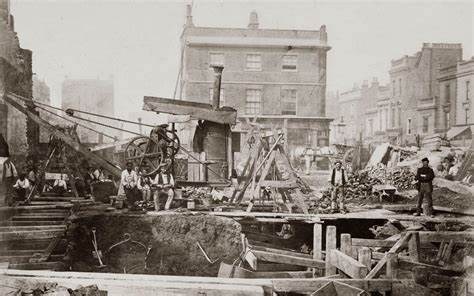
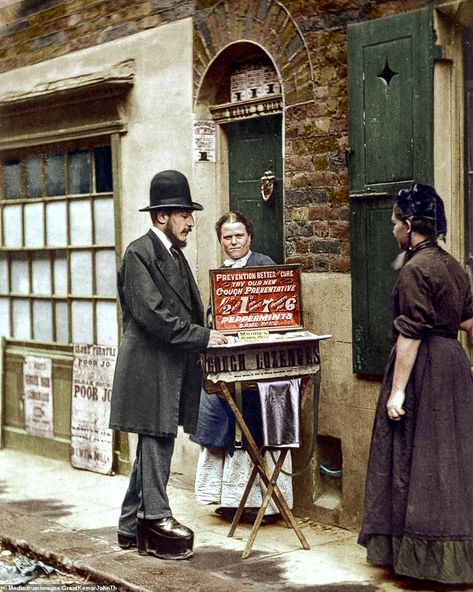








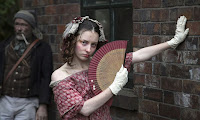


.jpg)
